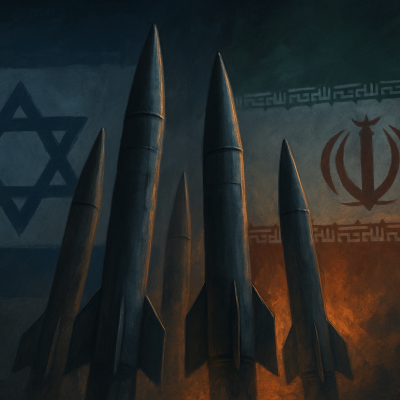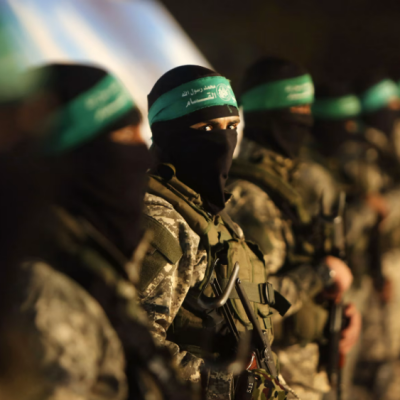John Siko (D Litt et Phil), Senior Strategist on Africa at IGSDA – Director of Burnham Global, Dubai.
On 26 April, French energy giant Total announced that it was declaring force majeure on its $20 billion Liquid Natural Gas (LNG) project in northern Mozambique’s Cabo Delgado project, suspending operations and withdrawing all staff. This followed March attacks on the city of Palma by insurgents who have been causing carnage across the province since 2016, reflecting Total’s lack of confidence that Mozambican security forces can maintain security in the area. With partner ExxonMobil also choosing to hold off on final investment, the project — which had been scheduled to start producing gas in 2024 — looks to be indefinitely delayed, a huge blow for Maputo, which had seen the project as having a transformational impact on the nation’s economy.
Total’s decision is the latest — and most economically significant — example of how the increasingly dire security situation across Africa is holding back economic growth, raising costs for investors, and stopping or delaying projects both small and large. An attack by al Qaeda-affiliated terrorists in 2013 on the In Amenas gas facility saw more than 800 hostages taken, at least 39 of whom were killed. In Burkina Faso, for instance, a 2019 attack on a Canadian mining company’s convoy killed 37 workers and led operators to spend millions to bolster security.
In analysing these and other smaller attacks, several common themes stand out. First and foremost is the lack of sustained and clear communication between private sector operators and government security forces, particularly in regard to intelligence sharing. Second is an underestimation of the enemy threat from both private and government actors, a belief that insurgents were unable or unwilling to mount large-scale attacks on privately owned operations. And third — with the possible exception of Algeria — government security forces lacked the training, equipment, and intelligence to combat the enemy.
The attack on Palma exemplifies these shortcomings. In August 2020, Total signed a Memorandum of Understanding (MoU) with the Mozambican government to provide a dedicated military Joint Task Force (JTF) to protect its gas development outside Palma. The soldiers it provided, however, were poorly trained and equipped, operating from defensive bastions inadequate for the job. Not capable of operating outside the site’s perimeter, the soldiers had no intelligence suggesting an attack was imminent, nor were they able to counter it once it occurred. The poor quality of the JTF was well known by local observers long in advance of the attack; why Total did not take more active steps to address this remains a mystery.
However, what this does speak to is the need for a new model of public-private engagement in the security space, particularly in Africa but really in any conflict-affected region. Mozambique exemplifies the traditional model: while a JTF was negotiated and funded by Total, the oil major took a largely ‘hands off’ role once it was put in place. This speaks to a philosophical view among most businesses that, in a conflict area, anything beyond the perimeter of an asset is the government’s responsibility.
This view is understandable. There are legal considerations, both in host and home governments, as well as ethical concerns about the legitimacy of private actors to act in this space. That said, there are practical considerations that must be taken into account as well. Firstly, African militaries as a whole have seen a steady decline in funding over the past two decades, leaving them ill-prepared to take on mounting insurgent threats. Second, in a crisis, MoUs are not worth the paper they are written on; even governments with the best intentions to protect critical assets are often forced to redeploy troops to deal with active threats. And lastly, any military force that acts in a purely defensive posture around a strategic asset is a sitting duck; these forces must have an attack capability that allows them to take on insurgents in the field and create a meaningful cordon sanitaire around it.
This status quo is untenable. It leaves businesses exposed to high levels of security risks, raising costs and delaying investment. This in turn starves governments of badly needed tax and concession revenues, which further limits their ability to spend on defense. It is a vicious circle, with no end in sight.
However, there is an alternative, one that demands closer engagement — and ultimately trust — between businesses and governments. It is actually similar to the JTF model from northern Mozambique, but with far more active involvement from the private sector. In such a model, the operator/concessionaire of an asset would pay a portion of its tax revenues or concession fees into a jointly administered pot specifically dedicated to security around that asset (or region, assuming several businesses are involved). A joint business-government body, meeting regularly, would assess the security situation and using outside experts determine what sort of force is needed. Then, money would be allocated from the pot for the training and equipment of that force, along with sustained long-term mentoring. This force would then operate in the field around the asset, ensuring that the insurgent threat is minimised.
The benefits of such a model are clear for both sides. Businesses would be able to operate and expand their operations, most likely minimising operating costs due to a more permissive security environment (even if they may end up paying more up front to ensure the quality of the force). Also, controlling the purse strings gives them more direct assurance that the force would be used in the manner in which it was established. It also builds host nation capabilities, avoiding any ethical concerns, and provides security to asset-adjacent communities; no corporate social responsibility initiative would be more valuable. Host nations, meanwhile, significantly bolster their military capabilities, improve their security, and bolster tax revenues.
There is another, less obvious, advantage to this model. Across Africa, security responses to insurgencies have been dominated by external actors: multilateral UN peacekeeping missions, France, the EU, the US, and so on. In July Mozambique announced that Rwandan troops would be deploying to Cabo Delgado, while a regional SADC mission is likely not far behind. While these interventions may bring some short-term relief (although not always), they also represent a loss of agency and a lack of control over the domestic security situation. Foreign forces lack the legitimacy and commitment to bring lasting solutions, and many have ulterior motives. Private sector actors, on the other hand, generally benefit from lasting peace and security; thus bolstering local security force capabilities is something that benefits both sides.
Ultimately, this model demands open communication and trust, which is often in short supply between governments and businesses across Africa. Still, it is one that firms — particularly but not solely in the extractive sector — should explore internally and raise with host governments, and now. Insecurity across the continent is increasing, threatening long-term projects. Tanzania’s planned Lindi LNG development is less than 100 kilometres from the border with Cabo Delgado; insurgents are already known to operate in southern Tanzania, and there is no reason they could not pose the same threat there. Gold mines in Mali and Niger are perpetually at risk, with new development limited by the insurgent threat. And even solar projects, often planned to be sited in remote areas where government control is minimal, are threatened. These are not theoretical risks; unless steps are taken soon, African economic growth and private sector profits are both sure to suffer.





